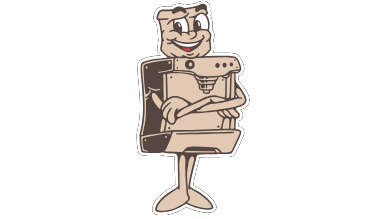Bladder and bowel incontinence can be stressful, frustrating, and embarrassing. The associated difficulties are real, but it’s a bit of a misconception that they are unavoidable parts of aging. Understanding the risk factors of bowel and bladder incontinence can help men experiencing related symptoms achieve a proper diagnosis and treatment.
Types Of Incontinence
Before exploring the causes of bowel and bladder incontinence in men, it’s essential to understand the various types of incontinence. The following are the primary types of incontinence experienced by men.
Urge Incontinence
Urge incontinence occurs when the bladder contracts or spasms when it usually wouldn’t. Individuals with this type of incontinence will feel the sudden urge to urinate and struggle to hold their urine long enough to reach the bathroom because of the intense need to urinate.
Stress Incontinence
Stress incontinence occurs when involuntary physical stress or pressure is put on the bladder, causing it to leak. This pressure might happen when you lift, cough, bend, laugh, sneeze, or exercise and can trigger urine leaks.
Overflow Incontinence
Overflow incontinence occurs when you cannot empty your bladder when going to the bathroom. As a result, small amounts of urine leak from your bladder suddenly and involuntarily.
Mixed Incontinence
Mixed incontinence is a mixture of stress and urge incontinence and is attributed to more than one cause. Many men suffer from a combination of incontinence types.
Functional Incontinence
Functional incontinence occurs in men and women with normal bladder control whose problem comes from other conditions, like arthritis, that make it difficult to get to the bathroom in time.
Passive Bowel Incontinence
Passive bowel incontinence is a medical condition that prevents the brain from sending warning signals to the rectum when it is full, causing fecal matter to leak. Passive bowel incontinence is very common.
9 Causes Of Incontinence In Men
So, what are the primary causes of incontinence in men? Below are a few reasons you might struggle with incontinence.
1. Prostatitis
A potential cause of bowel and bladder incontinence in men is prostatitis, which encompasses a group of conditions affecting the prostate gland and causing inflammation of this gland:
- Acute bacterial prostatitis
- Chronic bacterial prostatitis
- Chronic pelvic pain syndrome (CPPS)
- Asymptomatic inflammatory prostatitis
These conditions often cause a frequent urge to urinate, which can feel uncontrollable for many men. Prostatitis can also cause a burning or itching feeling when urinating that can be incredibly uncomfortable.
2. Nerve and Muscle Damage
Another potential cause of bowel and bladder incontinence is nerve and muscle damage, which is commonly caused by certain surgeries. Prostate surgery specifically can lead to incontinence in some older men.
3. Neurological Disorders
Bowel and bladder incontinence is potentially caused by certain neurological disorders, including multiple sclerosis, strokes, spinal injuries, brain tumors, and Parkinson’s disease. These conditions can potentially interfere with the body’s nerve signals that control bladder and bowel control, leading to incontinence in men.
4. Enlarged Prostates
A reason many men feel a constant urge to urinate is an enlarged prostate. An enlarged prostate gland can cause benign prostate hyperplasia – a condition where the prostate enlarges as you age. For this reason, this cause of incontinence is particularly common in older men compared to younger populations.
5. Urinary Tract Infections
While these infections are more common in women, many men still suffer from common urinary tract infections (UTIs). A UTI is associated with incontinence because it’s associated with overactive bladder symptoms like the constant urge to urinate. Because these infections irritate your bladder, you might feel discomfort and pressure that makes you feel like you must urinate more frequently than normal.
6. Aging
A simple cause of bowel and urinary incontinence is aging, meaning incontinence is often uncontrollable no matter how healthy you are. As you get older, your bladder muscles age and might lose the capacity to store large volumes of urine like they could when you were younger. Additionally, as you age, you might experience more frequent involuntary bladder contractions, which can make incontinence more difficult to handle.
7. Diabetes
There are many conditions where incontinence is a symptom, such as diabetes. Diabetes causes urge incontinence or overflow incontinence. Type 2 diabetes is particularly common in adults over the age of 45, meaning adult males are likelier to struggle with bowel and bladder incontinence related to diabetes.
8. Weight
Being overweight or obese also influences the likelihood of struggling with incontinence. Though weight’s association with incontinence is more common in women than men, this is still a possible reason for male incontinence. Overweight or obese individuals have excess body weight on the pelvic floor, which can contribute to weakening the pelvic floor and fostering incontinence.
9. Unbalanced Diet
For some men, the reason behind incontinence is as simple as their diets. Temporary urinary incontinence can be treated by adjusting your diet, as specific foods and drinks are diuretics, which stimulate the bladder and boost urine volumes. These foods and drinks include the following:
- Caffeine
- Alcohol
- Sparkling water and other carbonated drinks
- Chocolate
- Foods high in spice, sugar, and acid
- Citrus fruits
- Chili peppers
- Artificial sweeteners
- Foods high in vitamin C
Adjusting your diet and cutting back on some of these foods and drinks can reduce incontinence and make you feel more comfortable.
Understanding Incontinence
There are several potential causes of bowel and bladder incontinence in men. From prostate conditions to diabetes and poor diets, the causes of incontinence in men are multiple, so addressing this issue requires help from a healthcare professional who can diagnose and treat bowel and bladder incontinence. If you are struggling with overactive bladder symptoms, seeking help and guidance is crucial to returning to normal and controlling your bowel and bladder movements.

